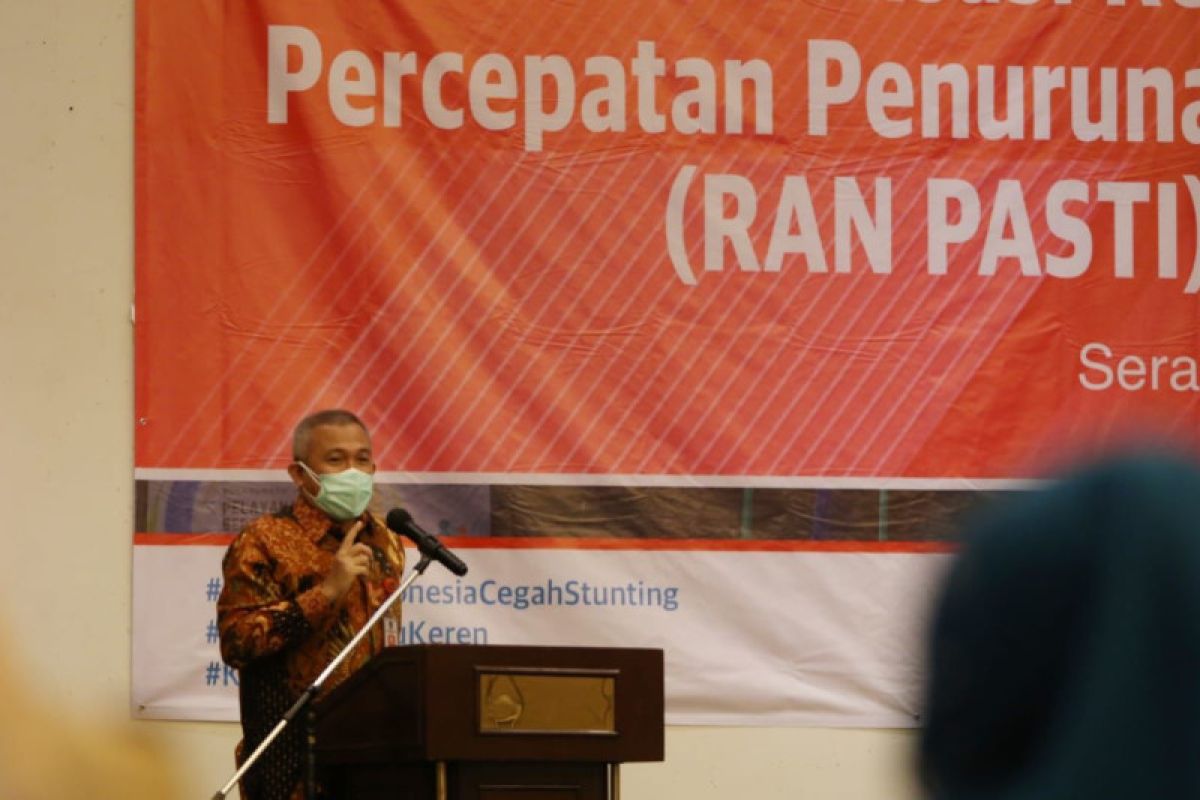Jakarta (ANTARA) - The Coordinating Ministry for Human Development and Culture stated that clean and healthy living behavior (PHBS) was an important key in preventing and handling cases of stunting.
"The ministry continues to emphasize the importance of PHBS in various aspects, including preventing stunting and various other health problems," the ministry's deputy for coordination of health quality improvement and population development Agus Suprapto stated here on Tuesday.
Suprapto remarked that fulfilling a balanced nutritional intake, ensuring adequate sanitation, and keeping the environment clean were included in the important efforts to prevent stunting.
Related news: Need more research at regional level to address stunting: BKKBN
"To accelerate stunting reduction, PHBS must be implemented frequently by all elements," Suprapto remarked.
Moreover, nutritional fulfillment coupled with good environmental conditions will support the growth and development of children, he remarked.
"A balanced nutritional intake and keeping the environment clean are also necessary for pregnant women in order to give birth to a healthy baby," he said.
He noted that PHBS in the family has an important role in supporting acceleration of the stunting reduction program in the country.
"Family has the responsibility to prevent stunting by providing nutritious intake to pregnant women and children and ensuring that no family member smokes, especially around pregnant women or children," he remarked.
Related news: BKKBN invites santri to accelerate stunting reduction in children
Meanwhile, optimal education related to stunting prevention efforts would play a strategic role in accelerating the reduction in stunting prevalence, he added.
"Education regarding efforts to prevent stunting must continue to be disseminated throughout society," Suprapto remarked.
Meanwhile, Coordinating Minister for Human Development and Culture Muhadjir Effendy affirmed that stunting prevalence must decrease by three percent per year to reach 14 percent by 2024.
Based on data from the Indonesian Toddler Nutrition Status Survey (SSGBI) in 2021, stunting prevalence was still at 24.4 percent, or 5.33 million children under five, he explained.
Related news: Ministry to combat stunting through National Nutrition Movement
Related news: Jambi fights stunting through Integrated Family Planning Program










